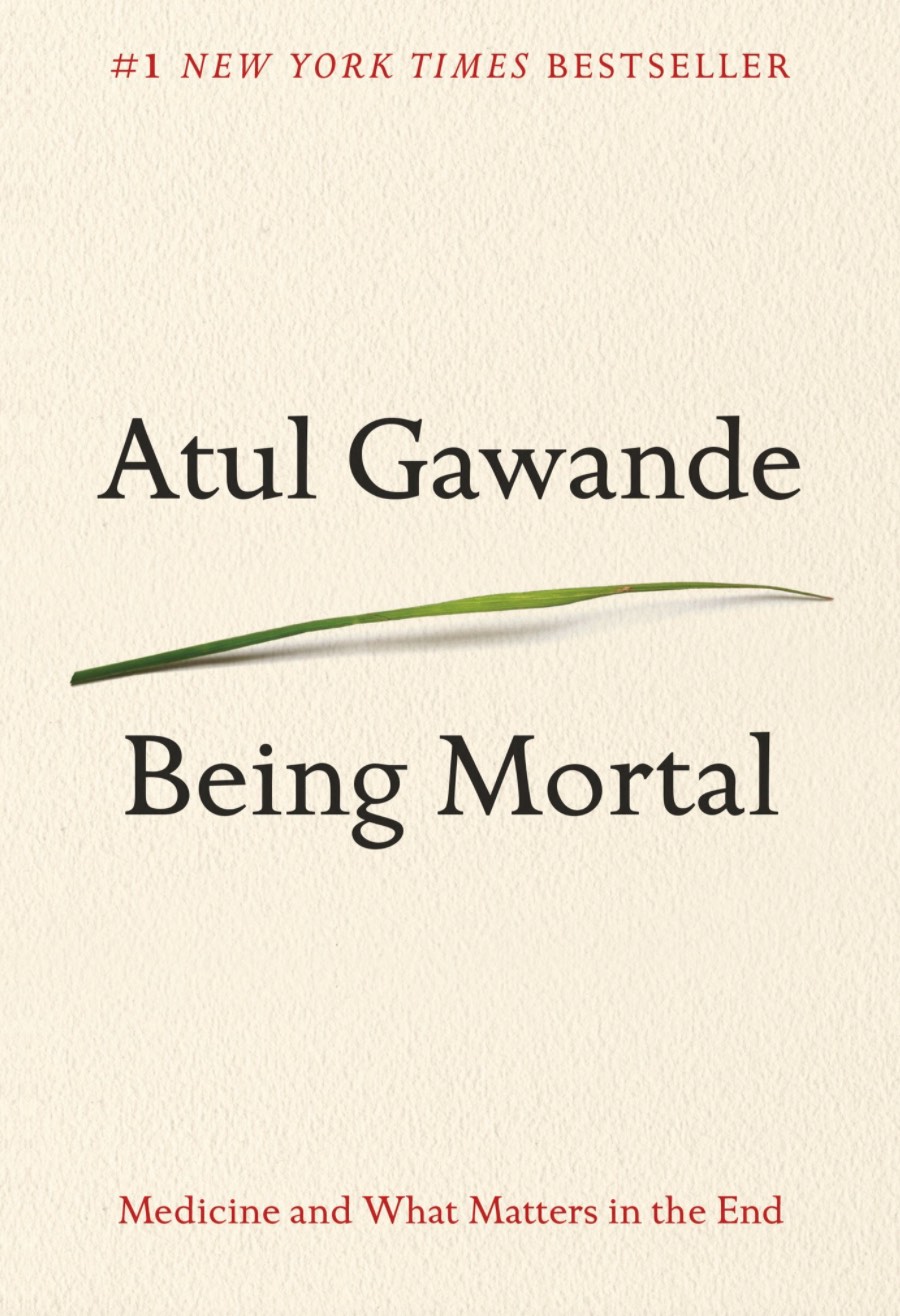The Gist

-
We need to value assisted care, especially for end-of-life patients.
-
Those in the end stages of life benefit greatly from maintaining the autonomy and agency they had when they were younger, more independent adults.
-
As our time horizons narrow, we tend to focus more on the present, deepening our social circles to focus on the activities and people that matter most to us.
Impressions
How I Discovered It
I had heard of Atul Gawande during my Literature and Global Health course, and chose to get the Audible version.
Who Should Read It?
I’d recommend this book particularly to those who have aging or dying loved ones. For example, spouses and children of those suffering from a terminal illness (end stage pancreatic cancer, for example) would benefit immensely from reading this book.
How the Book Changed Me
-
I now have a deeper appreciation for Hospice as an alternative to traditional medical treatment, especially for those coping with a terminal disease.
-
Now I appreciate that in the face of terrible odds, of a disease we are struggling against, sometimes the bravest form of action is no action. We need to ask our terminally-ill loved ones more about what they hope to gain from a treatment, what their goals are, and what they are willing to sacrifice prior to suggesting various treatment options.
-
I used to think that persisting to the bitter end trying to fight a disease is the wisest approach to caring for someone. Now I realize there is more nuance: evaluating the context for when to struggle now to enjoy time later, or when to comfort a patient in their last days to enjoy the present moment is critical for ensuring ethical decisions when it comes to end-of-life.
My Top 3 Quotes
“And, in a war that you cannot win, you don’t want a general who fights to the point of total annihilation. You don’t want Custer. You want Robert E. Lee, someone who knows how to fight for territory that can be won and how to surrender it when it can’t, someone who understands that the damage is greatest if all you do is battle to the bitter end.”
“Arriving at an acceptance of one’s mortality and a clear understanding of the limits and the possibilities of Medicine is a process, not an epiphany. "
“And well-being is about the reasons one wishes to be alive. Those reasons matter not just at the end of life, or when debility comes, but all along the way. Whenever serious sickness or injury strikes and your body or mind breaks down, the vital questions are the same: What is your understanding of the situation and its potential outcomes? What are your fears and what are your hopes? What are the trade-offs you are willing to make and not willing to make? And what is the course of action that best serves this understanding?”
Reflections
Death is a friend. It reminds me of how I should strive to live every day as if it is my last. It gives me a gentle reminder of my fragile existence and helps me accept that something greater than myself (my faith) is something that I believe in. This book helped me to understand how I should have difficult conversations with loved ones and those I care for regarding well-being and existence.
Gawande gives us a glimpse into how we should have deeper, more complex conversations with our loved ones and how they wish to spend their last days. These difficult conversations are rare, yet once we get over the initial apprehension, they can bolster our confidence and comfort in the choices we make. For example, I recently drafted a will and had an honest discussion with my dad about his will and wishes after his death. Having these frank conversations adds to our humility: acknowledging that we only live once encourages us to seek advice from medical and spiritual leaders who encounter stories of those who have passed quite often.
One fascinating topic in the book is about time horizons. When we know our time is limited, we change our behavior immensely, shifting from future-oriented to present-oriented mindsets. Whether we hear the grave news that we have only a couple of weeks to live or experience a near-death accident, these moments ground us in our fragile mortality. We shift attention to priorities and people who matter most. Often, people tend to make amends with their faith, turn to their family, and focus on activities that add the most meaning to their lives. When we are young, we tend to view our time on earth as limitless: we experiment, partake in habits and fall into potholes that we probably wouldn’t fall into if we grasped just how finite our time is. This is Youth. This book has encouraged me to come to terms with my time horizon: every day I am alive, my chances of death increase minutely. Over time, this chance compounds. I should appreciate every moment and have a mindset where I value my legacy, my relations with loved ones, and the activities (like writing these reviews) that bring me the most joy.